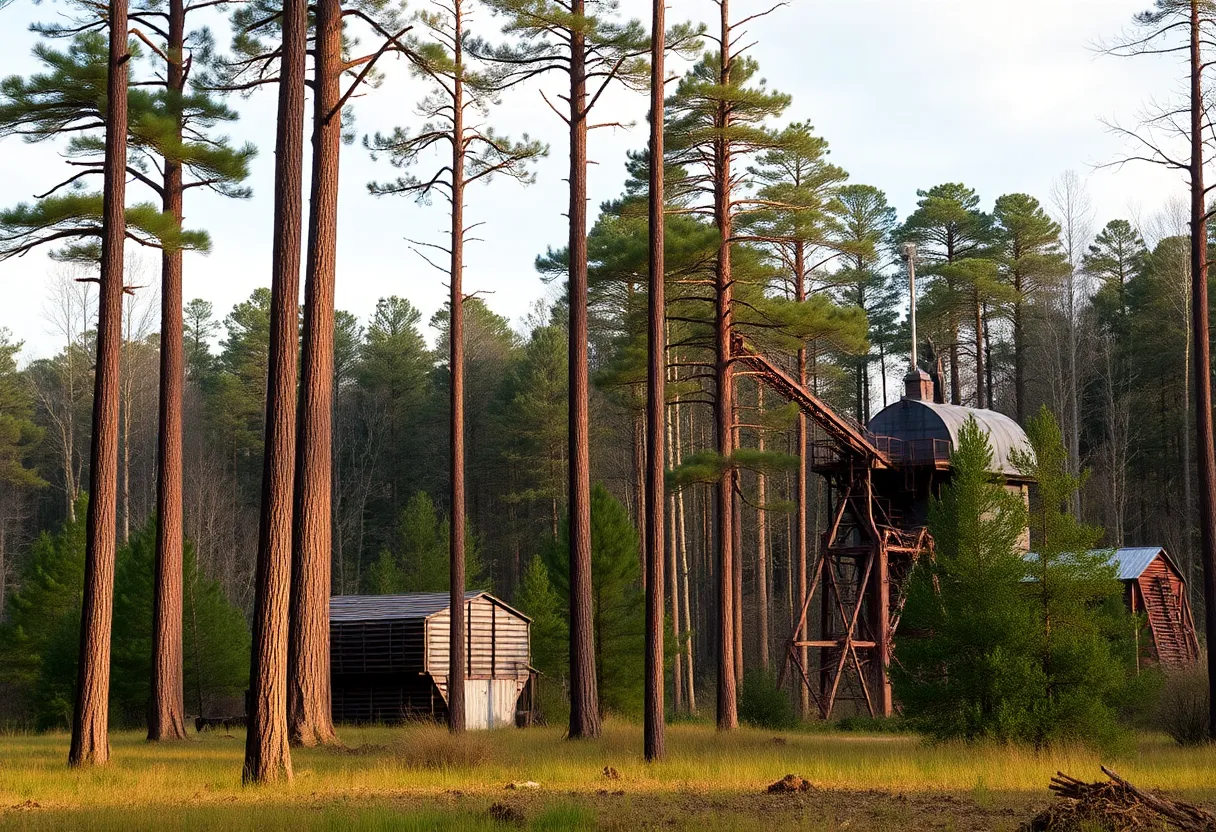News Summary
The timber industry in South Carolina is facing severe challenges with mill closures, particularly after the recent announcement from International Paper to close its Georgetown mill, eliminating around 700 jobs. The sector, vital to the state’s economy, is experiencing a 20% decline in the timber market, raising concerns about job security and financial stability for many families. The declining demand for wood products and increasing consumer preference for recycled materials are pushing the industry into crisis as it seeks support for survival.
South Carolina Timber Industry Faces Existential Crisis Amid Mill Closures
Welcome to Kingstree, South Carolina, where the timber industry, a vital cornerstone of the local economy, is currently grappling with significant challenges. For many families like the McFaddens, the timber industry isn’t just an occupation—it’s a way of life, and recent developments have thrown their future into uncertainty.
The Stakes Are High
With a staggering value of $23 billion and approximately 100,000 jobs linked to it, the timber sector forms a backbone for South Carolina’s economy. Yet, the recent announcement from International Paper about closing its Georgetown mill—a move that would eliminate around 700 jobs—has rattled the community, leaving many families worried about their financial futures and the livelihood of the industry at large.
This isn’t an isolated incident; since 2021, 10 mills or wood product companies have closed or scaled back operations in South Carolina. This situation has contributed to an estimated 20% decline in the timber market. With only about 40% of timber grown in the state being harvested, prices are trending downwards, adding pressure on families that rely on this resource for their income.
Real-Life Impacts
For the McFaddens of Kingstree, the timber business has always been about more than just cutting trees. It’s a well-planned investment that helped fund crucial milestones like education. Amy McFadden, a forestry manager and timberland owner, utilized the income from her family’s 100 acres of loblolly pines to help her daughter, Allie, pursue an education at Clemson University. Such stories highlight how deeply intertwined timber revenue is with family prosperity and community stability.
Changing Times and Choppy Waters
Amid these closures, families in the timber sector are left with burning questions. How will they pay bills? What does their job security look like? Many experts suggest that changing consumer habits—especially a growing preference for recycled materials—are curtailing the demand for wood products. In a nutshell, as fewer products are flying off the shelves, the future of local timber jobs hangs in the balance.
Compounding the woes are concerns from conservation advocates who argue that diminishing profitability could drive landowners to convert forested land for agricultural or housing development rather than protecting these valuable ecosystems. With approximately 87% of the state’s timberland held privately—often by families and individuals—there’s a lot at stake.
The Need for Support
Local leaders are sounding the alarm, noting that state support for the timber industry during this crisis has been sorely lacking. This moment reflects broader challenges: from environmental regulations to competition from international markets, the timber business is facing a tough battle to stay afloat.
Looking ahead, alternative solutions are being explored. Some suggest pivoting to new industries such as sustainable aviation fuel or mass timber production, while others point to the potential of entering international timber markets. However, these paths remain largely untested, and the uncertainty only adds to the anxiety gripping the timber community.
As family traditions of cutting timber hang in the balance, there lies a risk that without active management and intervention, forests could become overly dense, increasing wildfire risks. The call is stronger than ever for innovative solutions alongside wise forestry practices to avoid future crises.
Community Resilience in the Face of Crisis
As Brian Howard, a third-generation worker at International Paper, embarks on a job search following the mill’s abrupt closure, it serves as a poignant reminder that the heart of South Carolina’s timber industry is not just the trees but the families who rely on them. Together, they navigate this tumultuous period with hopes, fears, and dreams, showcasing the resilience inherent in these vibrant communities.
In a state where timber has long been synonymous with survival and growth, the next chapter remains unwritten, and the community awaits with bated breath. Will solutions emerge to revive this crucial industry? Only time will tell, but the people of South Carolina stand ready to face whatever comes next.
Deeper Dive: News & Info About This Topic
- Post and Courier: South Carolina Timber Industry Faces Existential Crisis Amid Mill Closures
- Wikipedia: Timber Industry
- Manning Live: The History of Greeleyville
- Google Search: Timber Industry Challenges
- Coastal Observer: Riverkeeper Returns Home as Steward for Two Waterways
- Google Scholar: Timber Industry South Carolina
- Woodworking Network: Canadian Millwork Firm Adds U.S. Branch
- Encyclopedia Britannica: Timber
- Post and Courier: SC’s Ambitious Black River Park Project
- Google News: Timber Industry







